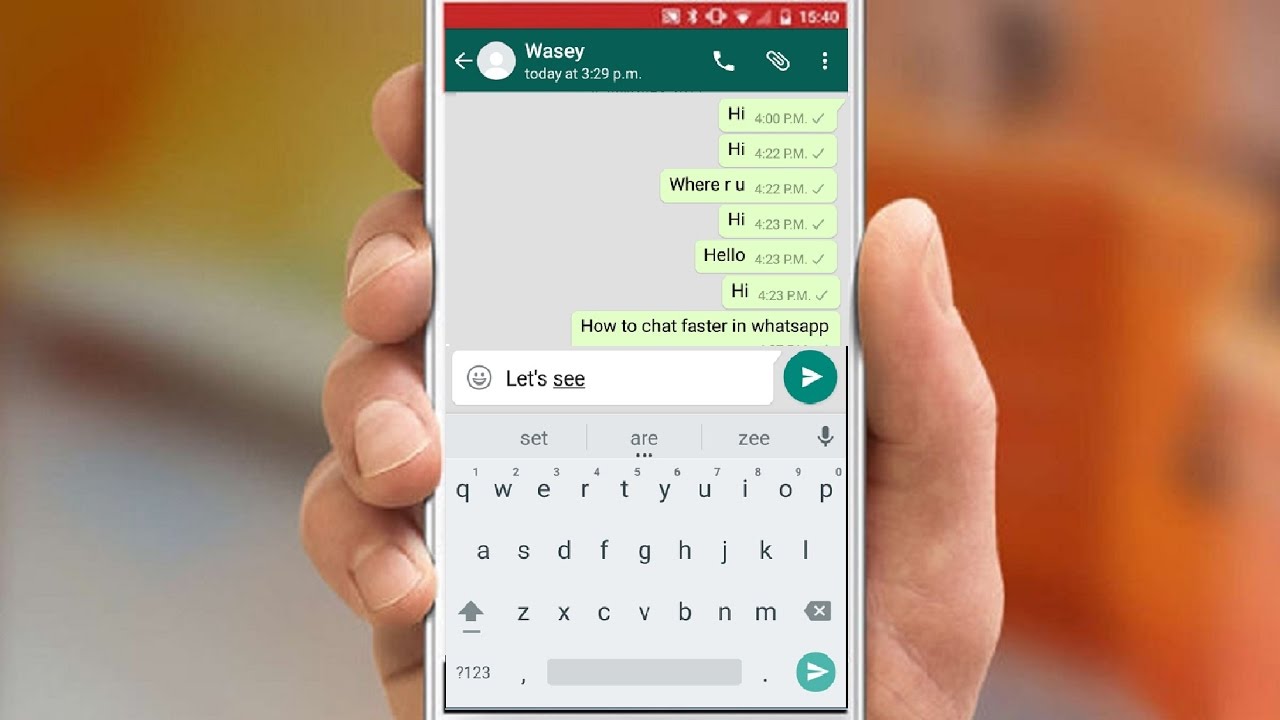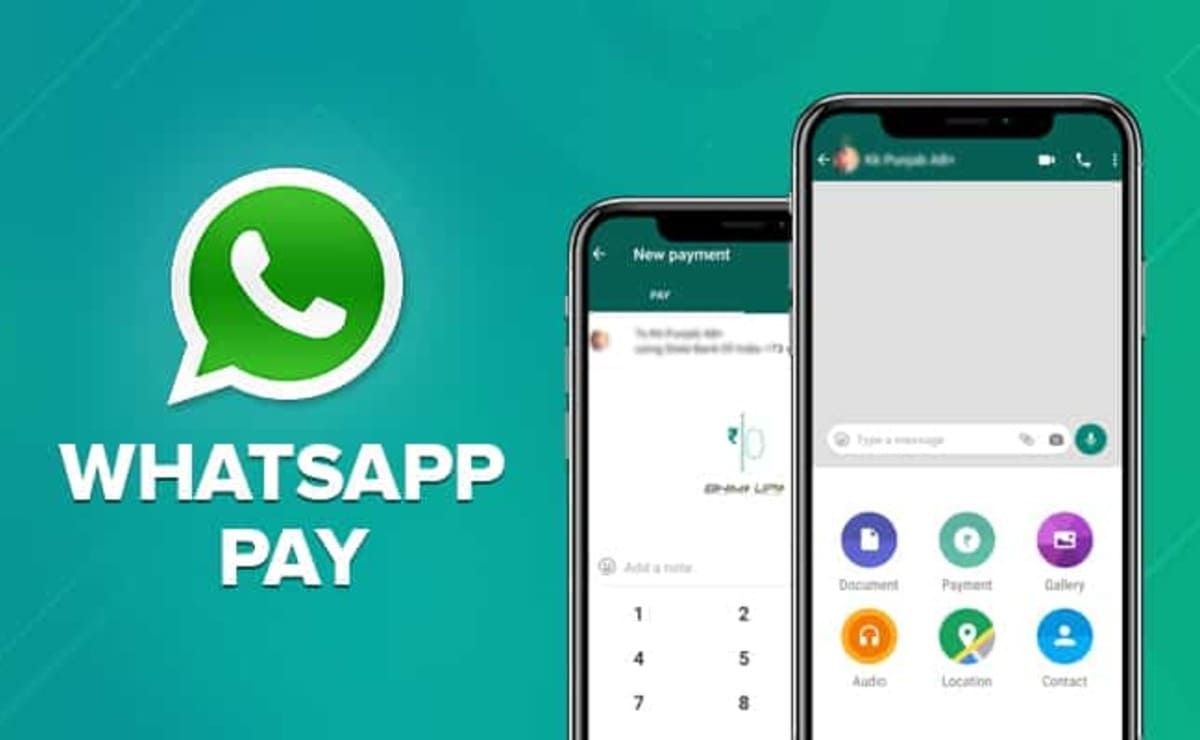What is Whatsapp
WhatsApp is a popular messaging application owned by Facebook. It allows users to send text messages, make voice and video calls, share photos, videos, and documents, and participate in group chats. WhatsApp is available on various platforms, including smartphones (iOS and Android) as well as web browsers through the WhatsApp Web interface.

One of the key features of WhatsApp is its end-to-end encryption, which ensures that only the sender and recipient can read the messages, making it more secure and private. Users can also create broadcast lists to send messages to multiple contacts simultaneously and utilize features such as status updates, voice notes, and location sharing.
WhatsApp has become a widely used communication tool, both for personal conversations between friends and family and for business purposes, such as customer support and marketing.
Whatsapp Features
WhatsApp offers a range of features that enhance communication and make it a versatile messaging platform. Here are some key features of WhatsApp:
- Messaging: Send text messages, emojis, stickers, and voice messages to individuals or groups. WhatsApp supports multimedia messages, allowing you to share photos, videos, documents, and contacts.
- Voice and Video Calls: Make high-quality voice and video calls to other WhatsApp users anywhere in the world over an internet connection. Group voice and video calls are also supported.
- End-to-End Encryption: WhatsApp uses end-to-end encryption, which ensures that only the sender and recipient can read the messages, providing privacy and security.
- Status Updates: Share photos, videos, or text updates as your status, visible to your contacts for 24 hours. This feature is similar to stories on other social media platforms.
- WhatsApp Web: Access and use WhatsApp on your computer through the web browser interface. It syncs with your mobile app, allowing you to send and receive messages from your computer.
- Group Chats: Create and participate in group chats with up to 256 participants. Share messages, media, and engage in group discussions.
- WhatsApp Business: WhatsApp offers a separate application called WhatsApp Business for small businesses. It includes features like business profiles, automated greetings, quick replies, and labels to manage customer interactions.
- Location Sharing: Share your real-time location or a specific place with your contacts or groups. This feature can be helpful for meeting up or keeping others informed about your whereabouts.
- Privacy Settings: Customize your privacy settings, including who can see your profile picture, status, last seen, and more. You can also block or report contacts if needed.
- Voice Notes: Record and send voice messages as an alternative to typing, allowing for quick and convenient communication.
These are just some of the notable features of WhatsApp. The app continues to evolve, with new features and updates being added regularly to enhance user experience and security.
Whatsapp Chat

WhatsApp chat refers to the conversation or communication that takes place between two or more individuals using the WhatsApp messaging platform. It involves exchanging text messages, media files, voice messages, or participating in voice or video calls.
When you initiate a chat with someone on WhatsApp, you can type and send text messages to them. You can also attach and send various types of media, such as photos, videos, documents, and contacts. In addition, you can send voice messages by recording a message and sending it as an audio file.
WhatsApp chats can be conducted between two individuals or within group chats where multiple participants can communicate simultaneously. Group chats allow members to exchange messages, share files, and engage in discussions with everyone in the group.
WhatsApp chat also includes features like read receipts, which indicate when someone has seen your message, and message timestamps, displaying the time when a message was sent or received. It also supports features like replying to specific messages, quoting messages, and mentioning specific participants in group chats.
Whatsapp payment

WhatsApp Payment, also known as WhatsApp Pay, is a feature that allows users to send and receive money securely within the WhatsApp messaging app. It enables users to link their bank accounts to WhatsApp and make peer-to-peer (P2P) payments directly from their chat window.
WhatsApp Payment utilizes the Unified Payments Interface (UPI) system in India, which is a real-time payment system developed by the National Payments Corporation of India (NPCI). It enables users to transfer funds between bank accounts quickly and securely.
To use WhatsApp Payment, users need to have a bank account with a participating bank and a registered mobile number linked to that account. They can then set up WhatsApp Pay within the app and initiate transactions by selecting a contact, entering the desired amount, and authenticating the payment with their UPI PIN.
WhatsApp Pay provides a convenient and seamless way to send and receive money without the need for separate payment apps or bank transfers. It integrates payment functionality directly into the messaging experience, allowing users to easily split bills, pay for products or services, or send money to friends and family.
It’s important to note that WhatsApp Pay is currently available in select countries, and the availability and specific features may vary depending on the region. Additionally, the regulations and terms associated with WhatsApp Pay may differ based on the country where it is being used.
How to create a Whatsapp account
To create a WhatsApp account, follow these step-by-step instructions:
- Download WhatsApp: Go to your mobile device’s app store (e.g., Google Play Store for Android or App Store for iOS) and search for “WhatsApp.” Download and install the app.
- Open WhatsApp: Once the app is installed, open it by tapping on the WhatsApp icon on your home screen or app drawer.
- Agree to Terms of Service and Privacy Policy: Read and accept the Terms of Service and Privacy Policy by tapping on “Agree and Continue” or a similar option.
- Verify Phone Number: WhatsApp will prompt you to enter your phone number. Select your country code from the drop-down menu and enter your phone number. Double-check to ensure the number is correct, as this will be used to verify your account.
- Verification: WhatsApp will attempt to verify your phone number automatically by sending an SMS with a verification code. Wait for the SMS verification to complete. If automatic verification fails, you can choose the “Call Me” option to receive a verification call with the code instead.
- Profile Setup: After successful verification, you’ll be prompted to set up your profile. Enter your name and optionally add a profile picture. This name and picture will be visible to your contacts on WhatsApp.
- Restore or Skip Backup: WhatsApp may offer to restore your chat history if it detects a backup associated with your phone number. You can choose to restore it from a cloud backup or skip this step.
- Start Using WhatsApp: You’re now ready to start using WhatsApp! You can begin by adding contacts, sending messages, making calls, and customizing your settings.
Remember, you’ll need a valid phone number to create a WhatsApp account, as WhatsApp uses your phone number as your unique identifier.
Is Whatsapp legit?
Yes, WhatsApp is a legitimate messaging application that has gained widespread popularity and is widely used by millions of people around the world. WhatsApp was founded in 2009 and has since been acquired by Facebook, making it part of the Facebook family of products.
WhatsApp provides end-to-end encryption for messages, which means that the content of your messages is only visible to you and the intended recipient(s). This encryption ensures privacy and security for your conversations.
However, it’s essential to note that while WhatsApp itself is a legitimate platform, there have been instances of scams and fraudulent activities carried out through the app, just like any other messaging platform. It’s important to use caution and be mindful of sharing personal information or engaging in suspicious activities with unknown contacts.
To ensure your safety on WhatsApp, it is recommended to adhere to general security practices such as not clicking on suspicious links, not sharing sensitive information with unknown contacts, and using two-factor authentication for added security.
Advantage & Disadvantage
Advantages of WhatsApp:
- Free Messaging: WhatsApp allows users to send text messages, make voice and video calls, and share media files without incurring SMS or call charges, as long as you have an internet connection.
- Ease of Use: The app is user-friendly and intuitive, making it easy for people of all ages to navigate and communicate with others.
- End-to-End Encryption: WhatsApp uses end-to-end encryption for messages, ensuring that only the sender and recipient can access the content, enhancing privacy and security.
- Multimedia Sharing: You can send and receive various types of media files, including photos, videos, documents, and voice messages, making it convenient for sharing content with friends and family.
- Group Chats: WhatsApp supports group chats, allowing multiple people to communicate together, making it ideal for social or professional group discussions.
- Voice and Video Calls: You can make high-quality voice and video calls with other WhatsApp users, enabling you to connect with friends, family, or colleagues around the world.
- WhatsApp Web: The ability to access and use WhatsApp on your computer through the web browser interface allows for seamless multi-device usage.
Disadvantages of WhatsApp:
- Internet Connection Requirement: WhatsApp heavily relies on an internet connection, so you need a stable internet connection to send and receive messages or make calls.
- Contact Privacy: WhatsApp requires access to your phone’s contact list, and by default, your contacts can see your profile information, which may raise privacy concerns for some users.
- Limited Features for Business Use: While WhatsApp Business exists, it may not provide all the advanced features and functionality needed for larger-scale business communication and customer support.
- Potential for Misinformation and Scams: Like any messaging platform, WhatsApp can be used to spread misinformation or scams, so users should exercise caution and verify information from reliable sources.
- Storage Space: WhatsApp media and chat backups can consume storage space on your device over time, especially if you receive or send a significant amount of media files.
- Dependency on Phone Numbers: WhatsApp accounts are tied to phone numbers, which means you need a valid and active phone number to use the service. This can be a limitation if you prefer anonymity or if you frequently change phone numbers.
Final word
WhatsApp is a widely used and trusted messaging application that offers numerous advantages, including free messaging, ease of use, end-to-end encryption, multimedia sharing, group chats, and voice/video calls. It has revolutionized communication, connecting people around the world effortlessly.
However, it’s important to be aware of potential disadvantages, such as the requirement for an internet connection, privacy concerns related to contact sharing, limited features for business use, potential for misinformation and scams, storage space usage, and dependency on phone numbers.
WhatsApp remains a popular and reliable choice for communication, but it’s essential to use it responsibly, exercise caution, and follow best practices for online safety and privacy. Stay vigilant, verify information from trusted sources, and make informed decisions regarding the sharing of personal information. By doing so, you can enjoy the benefits of WhatsApp while protecting yourself and your privacy.

















Leave a Reply